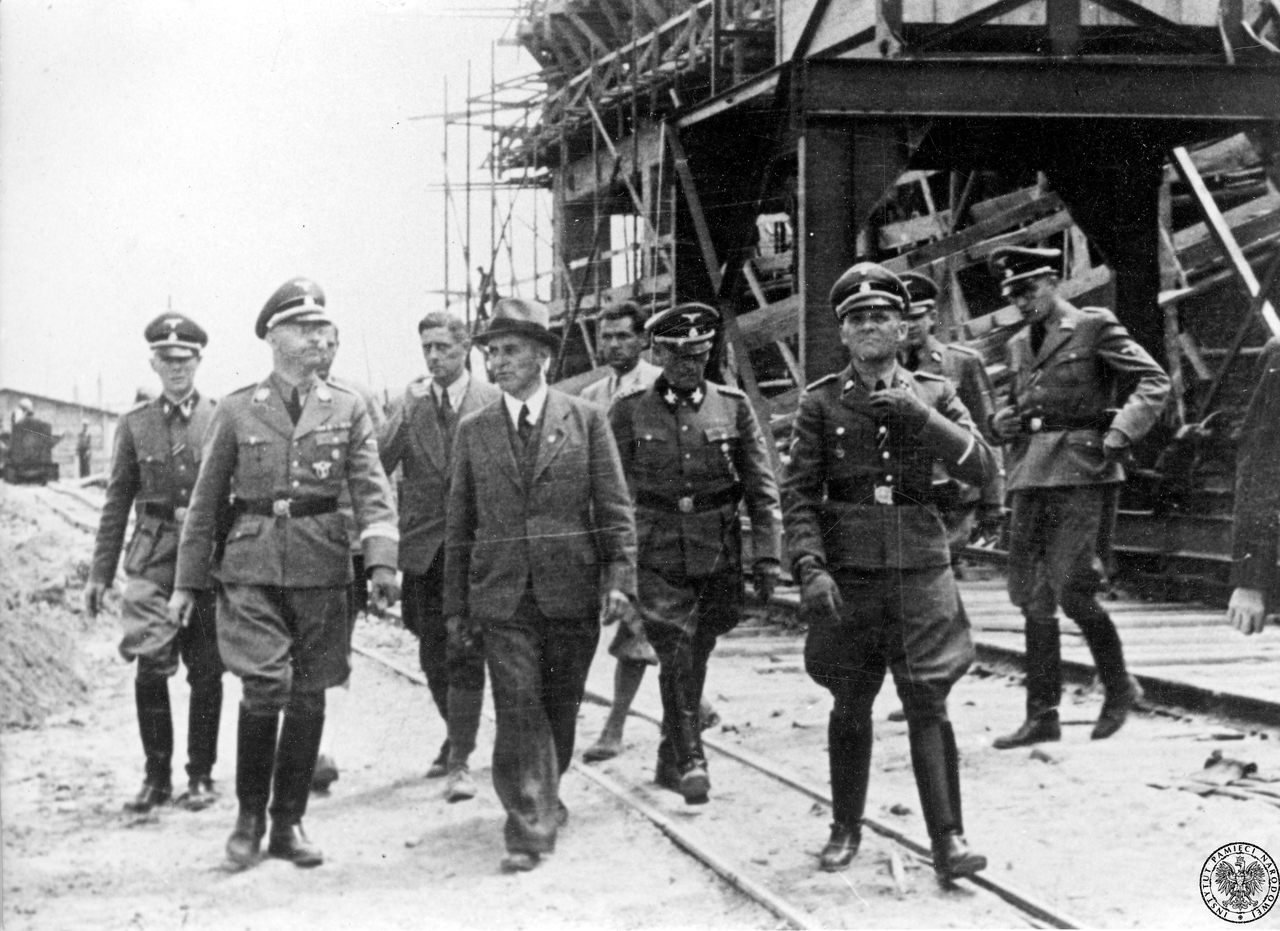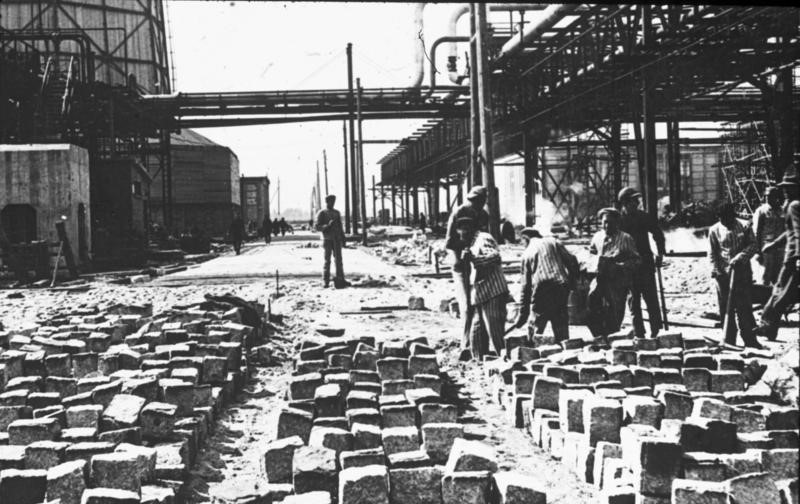Two families are suing German firms Bayer and Henschel for 19 million zloty (€4.3 million) in compensation for the persecution of two Polish businessmen during the Nazi-German occupation of Poland in World War Two.
Yesterday, the War Compensation Foundation (Fundacja Odszkodowań Wojennych), a Polish organisation acting on behalf of the families, announced that it had filed the two lawsuits at Kraków’s district court.
The first has been brought by three grandsons of Leopold Wellisz, a financier and industrialist with Jewish roots who fled Poland in September 1939 to avoid Nazi German repression. His brother, Karol, remained in the country and was killed during the war. Leopold later settled in the United States.
Leopold Wellisz built Poland’s heavy industry to bolster its defenses against another Soviet attack. This is a share certificate for one of his companies, which made explosives. It is dated 1921, the year after the Polish Bolshevik war. The Soviets attacked in 1939. pic.twitter.com/becU5w6Tm9
— Chris Wellisz (@wellisz) March 25, 2022
His grandsons are now seeking almost 17.4 million zloty (€3.9 million) in compensation and an apology from German firm Henschel GmbH as the legal successor to Henschel und Sohn, which during the war took over Polish locomotive manufacturer Fablok, whose co-founder and largest shareholder was Wellisz.
The second case has been brought against German pharmaceutical and biotechnology giant Bayer AG, which emerged after the war from IG Farben, a conglomerate that contributed to the Nazi war effort, including producing the Zyklon B gas used to murder over one million people in gas chambers.
Bayer is being sued by the daughter of Tadeusz Śledziński, who before the war had been the co-founder and director of a large Polish chemicals plant, Zakłady Azotowe. He was arrested by the Germans in 1940 and became one of the first prisoners transported to Auschwitz concentration camp that year.
During his five years imprisoned at Auschwitz, Śledziński was forced to work for IG Farben, which was involved in creating the camp and used it as a source of slave labour. Śledziński’s daughter is seeking around 1.7 million zloty (€0.4 million) in compensation from Bayer.

Heinrich Himmler, head of the SS, visiting the IG Farben plant at Auschwitz in July 1942. Prisoners working at the plant are also picture at the top of this article.
“Bayer co-founded IG Farben,” notes lawyer Monika Brzozowska-Pasieka, head of the foundation that is representing the claimants pro bono. “The president of this company, as well as members of the management board, took an active part in medical experiments and in the use of forced labour in Auschwitz-Birkenau.”
Brzozowska-Pasieka says that the lawsuits are groundbreaking because are being made against private companies rather than against the German state, which claims immunity in such cases, reports the Polish Press Agency (PAP). Her organisation says that further claims on behalf of other victims are being prepared.
“The subject of compensation has been around for a long time, but it mainly concerns the state-to-state relationship, and in terms of reparations,” she explained. “We, on the other hand, want to approach it from a completely different angle, that is civil proceedings.”
The lawyer says that they hope to “create procedures that would allow victims of any armed conflicts to seek compensation”.
The son of an Auschwitz survivor has filed a complaint against Germany at the European Court of Human Rights over its refusal to enforce a Polish ruling ordering German broadcaster ZDF to apologise for describing the camp as “Polish” https://t.co/fyA0rRdkdo
— Notes from Poland 🇵🇱 (@notesfrompoland) June 16, 2021
The lawsuits have received backing from deputy culture minister Jarisław Sellin, who told Polskie Radio that “German companies which used forced labourers and actually participated in crimes during World War Two were never legally held accountable for what they did”.
Last year, the Polish government launched an effort to obtain up to $1.3 trillion in reparations from Germany to compensate for losses caused by its brutal occupation of Poland during the war. Berlin, however, maintains that the issue has already been legally settled and the case is therefore closed.
Around 17% of Poland’s population was killed during the Nazi-German occupation in World War Two, a higher proportion than in any other country. Poland also saw many of its cities reduced to rubble and its cultural heritage looted and destroyed.
Germany's ambassador has warned Poland not to "open the Pandora's box" of war reparations because "nothing good would come of this for Europe".
But he also admitted that Germany's support for the Nord Stream gas pipelines from Russia "was a mistake" https://t.co/fLSbOKVMXe
— Notes from Poland 🇵🇱 (@notesfrompoland) May 24, 2023

Daniel Tilles is editor-in-chief of Notes from Poland. He has written on Polish affairs for a wide range of publications, including Foreign Policy, POLITICO Europe, EUobserver and Dziennik Gazeta Prawna.




















